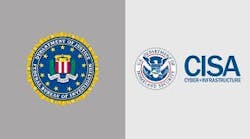Earlier this month, U.S. Supreme Court Justice Stephen Breyer was robbed by an intruder at his home on the Caribbean island of Nevis. The thief, who was armed with a machete, stole about $1,000 in cash and fled the scene. Neither Breyer, nor his wife or guests who were in the home at the time of the robbery were injured.
While authorities say it doesn't appear that Breyer was targeted due to his position on the high court, the incident has raised questions about the security of Supreme Court judges and whether or not they should be afforded additional security by the government.
Though they have not been the targets of assassination attempts, Supreme Court justices, on occasion, have been the victims of random street crime. In 1996, Justice Ruth Bader Ginsburg had her purse snatched while she was walking near her Washington home, but was unharmed. Several years later, retired Justice David Souter was assaulted during a jog by several men and suffered minor injuries.
The Supreme Court has its own police force that is responsible for protecting the justices when they are in the capital. However, when the justices travel outside the Washington, D.C. area, the U.S. Marshals Service takes over that responsibility.
According to Lt. Jimmie Barrett, former court security supervisor for the Arlington County Sheriff's Office in Virginia and author of the book "Protecting Court," more protection should be afforded Supreme Court justices given the importance of their positions in our government.
"The legislature has leaders in the House and the Senate that are protected because of their focus point," said Barrett, who currently serves as project manager for the ACSO. "And, I think it's logical the Supreme Court, which is also a focal point for that branch of government, that they receive some type of protection. Our forefathers created three branches with the intent of them being equal to each other to create that check and balance so I think in that context they should also have equal protection as well."
Just as the president and vice president are protected by the U.S. Secret Service and Congressional leaders are provided security by the U.S. Capitol Police, Barrett believes that the Supreme Court's current police force could take on personal protection responsibilities, but that it would prove expensive.
"I think that that would be a natural evolution for that agency to provide that type of protection," he said. "The real issue always boils down to money. It's very expensive to provide 24/7 protection and instead of providing protection for one person like the president, you're now providing protection for nine justices."
Barrett admits, however, that the relative anonymity of the justices themselves compared to the high-profile politicians in Washington helps shield their public exposure somewhat.
"Most people would be hard-pressed to name all nine (justices), let alone even recognize what they look like versus maybe the president or the leaders of Congress because they're faces and names are always constantly on the news," Barrett said. "Supreme Court justices are in the news in terms of their rulings, but individually they're not as well-known as maybe the other two so that anonymity actually helps protect them in that regard."
And while they receive a high level of protection while they are at the courthouse or in their offices, Barrett said that the justices, unlike other leaders in Congress, don't have staff members that do personal, day-to-day errands for them which would help reduce their exposure when they're outside the safety of the court's walls.
"They don't have staffs to go out and do those things for them. They typically do all of that themselves," he said. "There is a lot of opportunity to enhance their security when they're not at the courthouse."


